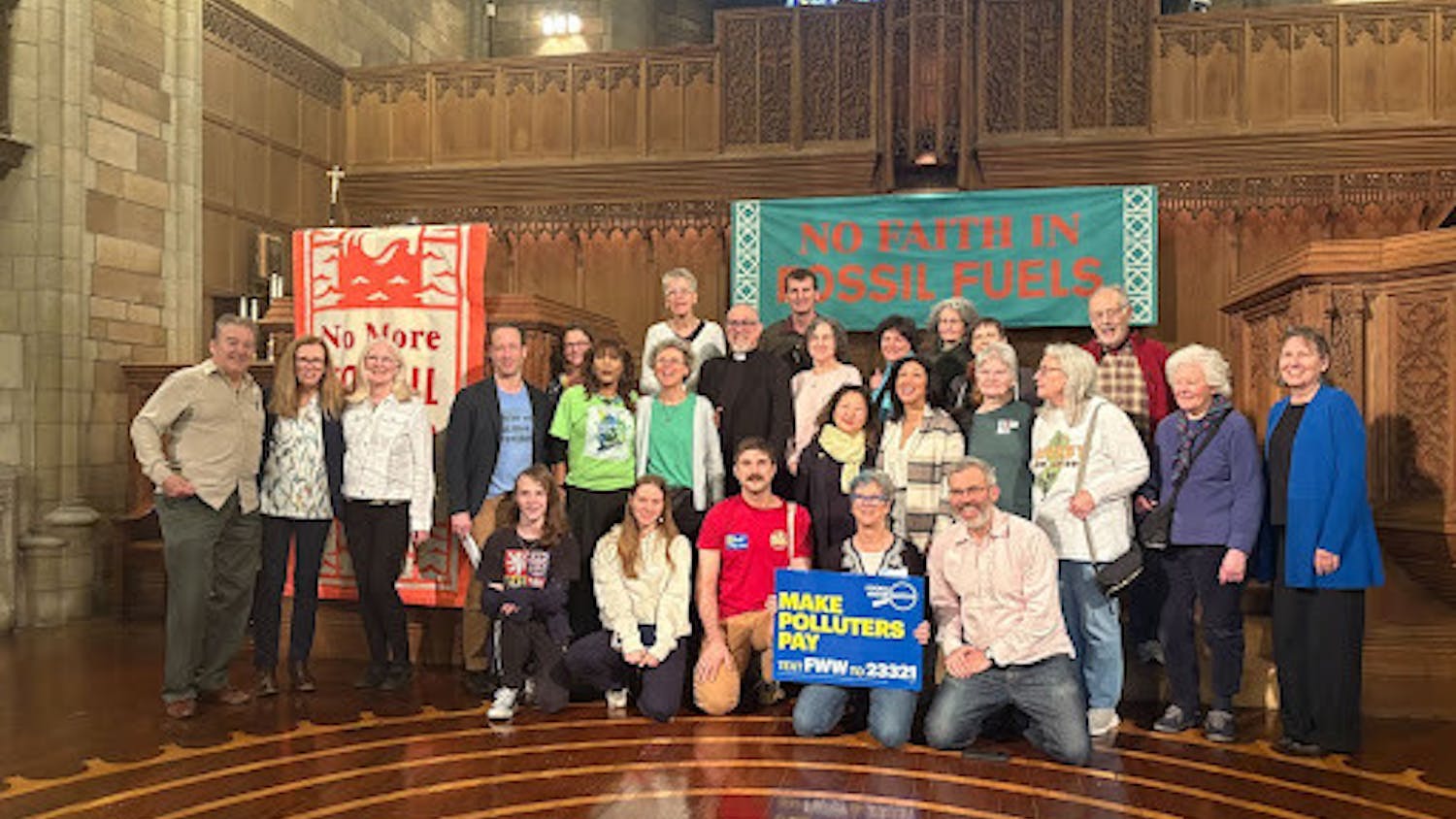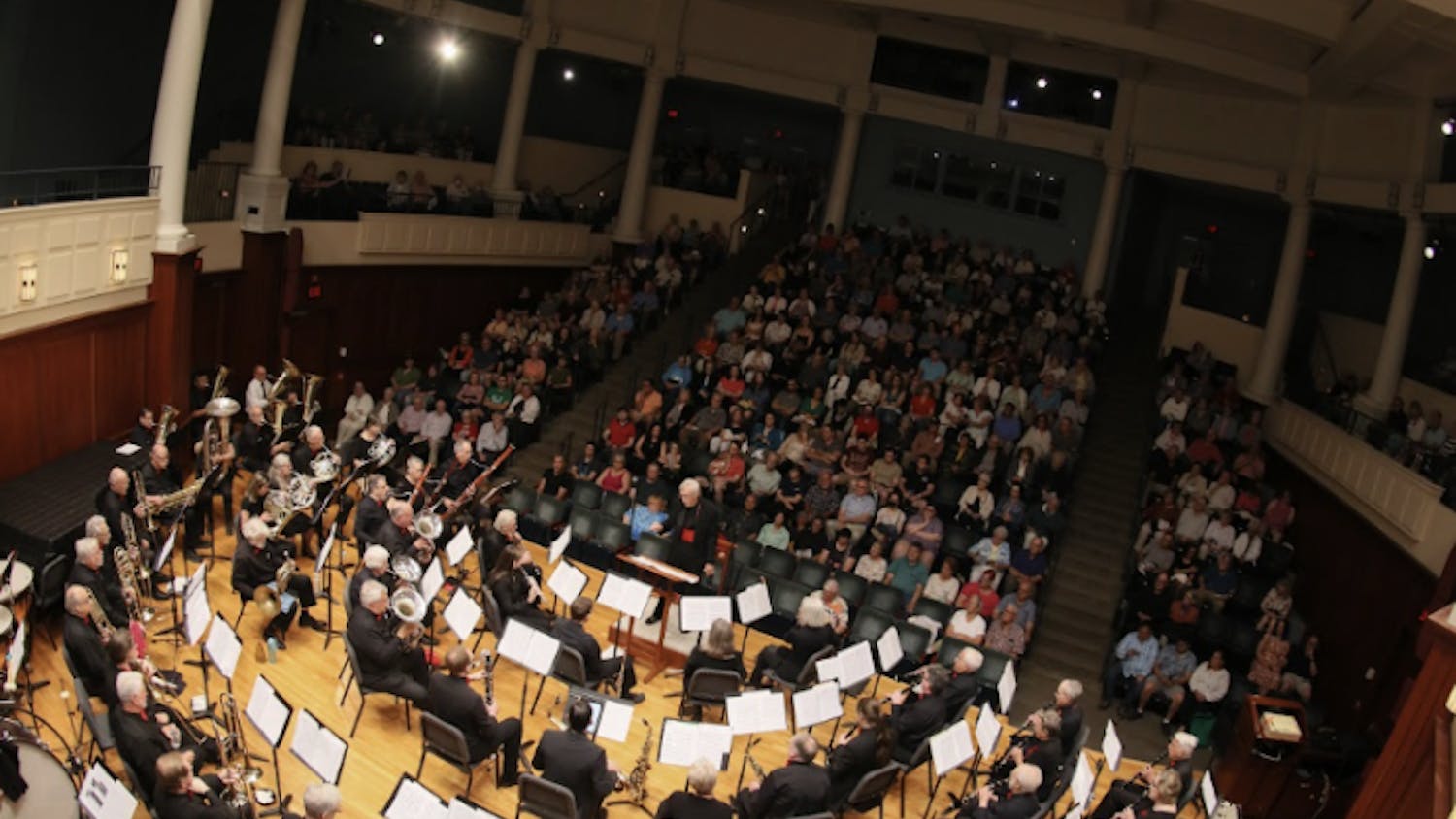One week after Valentine's Day, love was in the air. An arch of vibrant rainbow-colored balloons floated over silver wedding bells, transforming the atrium of the Social Sciences Building into a wedding chapel. There was a buzz among the many attending students creating an air of excitement.
Marching down the aisle to the tune of Pachelbel's "Canon in D," four couples, symbolically representing gay, lesbian, straight and transgender relationships, participated in the exchanging of vows and promises at PRISM's fifth annual mock wedding ceremony, Love is Love, last Thursday.
PRISM is the College's organization to support gay, lesbian, bisexual and transgender (GLBT) individuals. This year's ceremony was special because it coincided with the first day civil unions between same-sex partners were legally permitted in the state of New Jersey.
New Jersey is the third state, following Vermont and Connecticut, to recognize the civil union of same-sex partners. Massachusetts is the only state to legalize same-sex marriages. A civil union is a legally recognized union of two people of the same sex. It offers rights and benefits similar to those provided by marriage. Civil Unions were made legal in New Jersey on Monday, Feb. 19. However, because of the mandatory 72-hour waiting period required after applying for a license, Thursday was the first day in which same sex couples could declare a civil union.
While such legislation represents a political milestone, PRISM intentionally described the event as a mock wedding, demonstrating the persevering desire for true social equality.
"This year we've come a long way with equality, but it's still not marriage," Shannon Murray, senior civil engineering major, said.
"We're excited about this victory, but there is still a juxtaposition of politics and love in the gay community. Where is there room for politics in love?" PRISM's president Angel Hernandez, junior sociology and women's and gender studies major, said.
The purpose of the event, co-sponsored by the offices of Resident and Community Development and Campus Ministries, is to create awareness and educate the campus community about social issues of sexual identity.
Ultimately, the goal is "to foster an environment of equality and acceptance," Julie Bergman, sophomore secondary education/English major, said. "Even though the community at the College is pretty accepting for a state school, there is still room for improvement."
A big part of acceptance is "recognizing the privileges you enjoy if you're a heterosexual," Noel Ramirez, senior communication studies and women's and gender studies major, said.
Politics aside, the overwhel-ming theme of Thursday's wed-ding ceremony was love. The New Jersey Gay Men's Choir perfor-med several songs stressing themes not only of romantic love, but universal love as well. The chorus performs throughout the region and strives to promote a positive image of the gay community and make positive contributions to society as a whole.
This year's event also distinguished itself because of the incorporation of religious elements. "The ceremony was nothing short of amazing, especially with two religious figures showing their approval and passion," Hernandez said.
Acceptance by the religious community is one of the major barriers for the GLBT community, most notably in its quest for marriage. The Metropolitan Community Church and Unitarian Universalists openly condone same sex unions.
Rev. Kristine Foley, a minister in the Metropolitan Community Church, and Rev. Charles Stevens, a Unitarian Universalist minister, delivered inspiring messages about love at Thursday's event.
"I grew up in a value system that told me I would never enjoy the same rights or promises as others, but today we celebrate the joys and struggles of human love," Foley said.
Foley told the audience that common phrases from the Book of Ruth, used in traditional Catholic and Protestant wedding ceremonies, were first exchanged between two women. Readings and songs by student members of PRISM spoke of the strength and meaning of love.
Although the term marriage legally fails to encompass GLBT individuals, they hope that progressive legislation continues toward equality, so that next year they won't just have their cake, but eat it, too.






